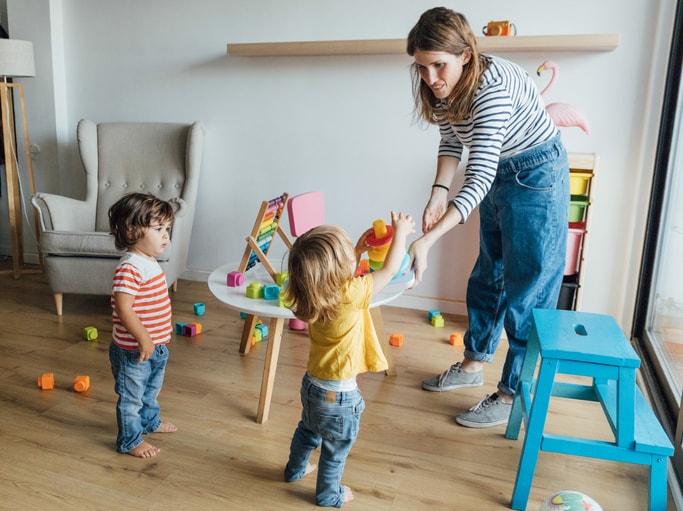The big day’s finally here: you’ve done your research, prepped your space, got your Ofsted certification – and you’re ready to welcome the first kids to your home as a childminder. Feeling a little nervous? Day-one jitters are totally understandable, which is why we’ve put together a few helpful tips to make sure things get off to a smooth start.
1. Set clear expectations
Make sure the parents or guardians know what to expect – and that you do, too. Ensure practicalities like payment, communication and late pick-up arrangements are clearly set out before you start. This includes clarifying whether you’re expected to collect the children and drop them off, how many meals you’re providing, etc. Ensure you discuss any dietary requirements in advance, as well as any learning difficulties or medical issues that may need special attention.
It can also be important to manage parents’ expectations in terms of care and activities. It goes without saying that you will want to take the needs of individual children into account, but some parents may need reminding that their child is not the only one you’re looking after – and that you can’t always guarantee things like specific nap times or entertainment. For more information on what you can – and cannot – be expected to do as a childminder, take a look here.
2. Establish your house rules and guidelines
Having certain non-negotiable rules isn’t draconian – in fact, it’s more likely to reassure parents than put them off. So don’t shy away from being clear about your requirements. If a child is sick, for example, you need to be able to send them home. If you have rules about children bringing their own toys and food, or if you charge a late pick-up fee, make sure you enforce these from day one. Trying to introduce them later always causes more friction in the long run.
3. Have a structured plan for the day
If you’ve planned the day in advance, you’ll be happier and more relaxed – and as a result, so will the kids. Have your activities, mealtimes, naps and outings scheduled in advance. That’s not to say there’s no room for spontaneity – after all, you never know what a group of little ones will throw your way – but having an idea of how the day should proceed is helpful for everyone.
“Themed days” based around a particular country, culture or animal – with outfits and activities to match – are a great way to bring variety to the week while remaining structured.
4. Hope for the best – plan for the worst
You should already have set up your home, carried out a thorough risk assessment and become aware of any hazards, e.g. stairs, exits and medicine cabinets, before you start. But it always pays to be extra prepared. Spend a few minutes on the first day making sure you’ve saved new parents’ or guardians’ personal and work numbers to your phone in case of an emergency – and preferably a back-up contact, too. It’s worth noting down your nearest A&E as well, just in case.
5. Bond with the children through hands-on activities
Active engagement is often the best way to bring kids out of their shell and help them get to know you and each other. It can take a while for young children to feel comfortable in a strange home with playmates they might not know – which is what settling-in days are for. There are various activities, games and ice-breakers that can help get children interacting and feeling more relaxed.
Make sure to have a range of age-appropriate activities that are suitable for different temperaments and ability levels. Even something as simple as a colouring session or an outing to the local park can be a low-pressure but fun way to connect. And sometimes, it’s good to be a bit of a kid yourself – if the little ones are into superhero dress-up, why not don that cape and get stuck in?
6. Debrief the parents at the end of the day
You may have your hands too full to send regular updates to the parents during the day – but make sure you’re able to give them a debrief when handing the kids over. Show them you’re proactive by offering an overview of the day’s activities, including highlights and lowlights, and how their child reacted. This will also reassure parents that you are looking out for their little one and giving them personal attention, even if you’re caring for multiple children at once.
7. Look after yourself
It’s not all about the families – childminders need professional satisfaction and a good work/life balance, too. Childminding is an incredibly rewarding job, but it can also be taxing. Try to end your day by doing something for yourself, so you don’t burn out. A trip to the gym, relaxing with a book or spending time on your favourite hobby are all good ways to wind down and make sure you’re taking care of your own well-being.
Looking for work as a childminder? Check out the latest vacancies here.
